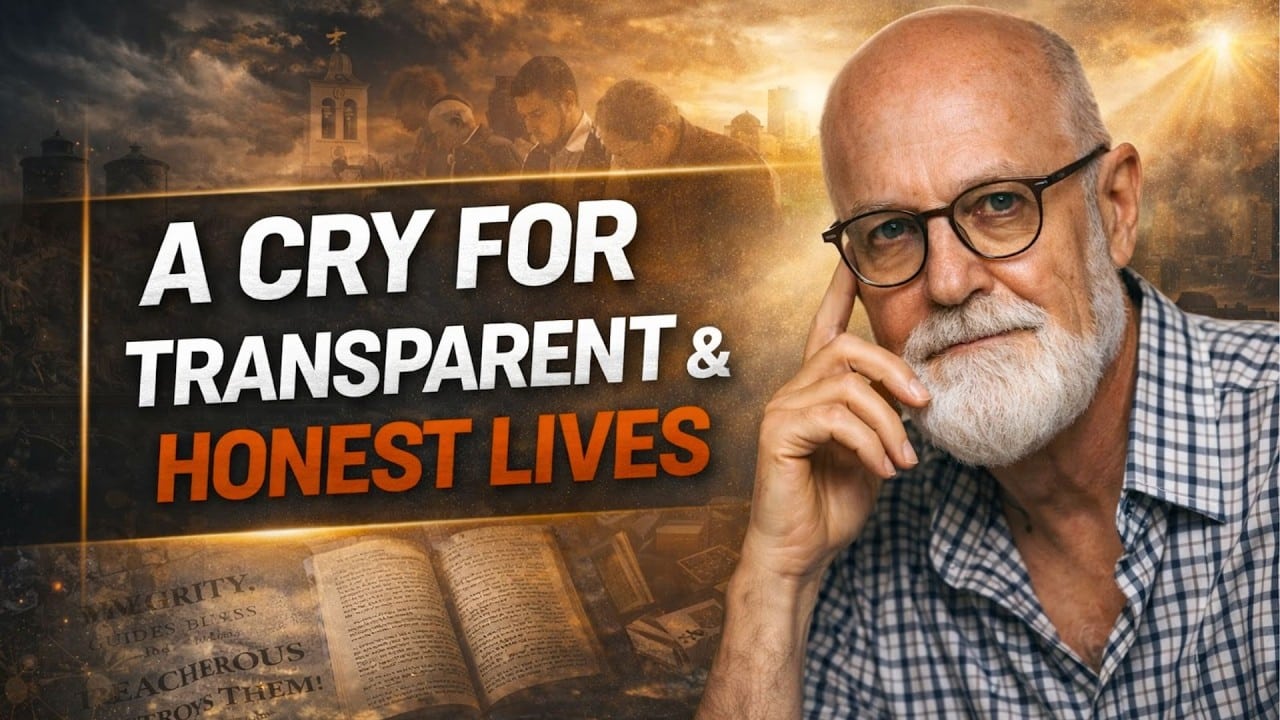“I will restore the ancient tools of the Watch of the Lord that have been used and will be used again to change the expression of Christianity across the face of the earth.”
June, 1991
This prophetic word came to me in the middle of the night on the Kansas plains. I had brought 30 people with me to that remote area for a prayer retreat at a country lodge. We were praying around the clock in prayer teams for “hour watches” or prayer periods, modeled after military sentry patterns. Our focus was not on fellowship or even a prayer list; we were there to seek God’s face. As usual, I had chosen the 2:00-to-3:00 a.m. time slot because the Lord had been waking me up at that time virtually two or three times a week for more than a decade. As I waited on the Lord, I suddenly saw a picture of an old farm implement, the kind of plow that used to be drawn by horses. When I asked the Lord what it was, the Holy Spirit said, “These are the ancient tools.” When I asked what these were, the response was immediate: “The Watch of the Lord is the ancient tool.” Now that phrase went deep inside of me and stuck. As I continued to wait before the Lord in that quiet, far-removed place, I saw the tool again and the Lord said, “I will restore the ancient tool of the Watch of the Lord. It has been used and will be used again to change the expression of Christianity across the face of the earth.” I was already familiar with the concept of “watching in prayer” in the Old and the New Testaments (sorry to say, it is sorely missing from the life of the Church at large). This clear word of the Lord given under the starry skies of Kansas lit a fire under me that ultimately propelled me into the borderland of ancient Saxony, the ancient site of the Moravian prayer watch at Herrnhut that lasted over 100 years non stop. Few English-speaking people use the term, “Watch of the Lord,” in our day. Books on prayer seldom discuss it. Yet the importance of the Watch of the Lord, or of watching in prayer, is very important to the plans and order of God. Jesus commanded us to “watch” with Him in several gospel accounts, particularly in the time called “the last days.” Much has been taught about “the last days” by teachers in Evangelical and Charismatic circles. But exceptionally little has been taught about the biblical response of God’s people to the last days. I made a comparative study of the verbs Jesus used in Matthew 24, Mark 13, and Luke 21, where He described how we should respond when we see earthquakes, famines, wars and rumors of wars, and so on. Here is a summary of these responses:
See Mark 13:
All of these statements can be summarized in three main phrases: “Do not be afraid” (mentioned four times), “Stand firm” (mentioned four times), and “Watch.” Jesus used this key word, “watch,” 11 times—almost three times more than any other admonition! Once again, you can hear His voice saying to the Church, “The key I give you is `watch.’ ” In Matthew 18:19-20, He gave us the keys of the kingdom, and they have to do with prayer: Again I say to you, that if two of you agree on earth about anything that they may ask, it shall be done for them by My Father who is in heaven. For where two or three have gathered together in My name, there I am in their midst (Matthew 18:19-20). Jesus wants groups of two or three people to gather in His name and ask in symphony or harmony. (The Greek word translated “agree” is sumphoneo, or “harmonious.”) This is the heart of the “watch of the Lord.” I know it’s profound, but you don’t need a doctorate in theology or linguistics to understand it. The Greek word for “watch” in these verses is gregoreuo, and it means “to be vigilant, wake, to be watchful.” A watchman on the wall does many things. He carefully watches what is happening and alerts the community when good ambassadors approach the city. The guardsman then will open the gates and lower the bridge so the ambassadors may enter. A watchman also warns the city far in advance when an enemy approaches. He sounds an alarm to awaken the people because he knows “to forewarn them is to alert and arm them.” Then they quickly can rally to take their stand on the wall against the enemy before he wrongfully tries to enter into the city.
Putting Out the Welcome Mat
We are to watch for the good things and good messengers God sends to His people. We are to watch for the gifted ones and the coming of the Lord’s Presence. We are to alert the people to roll out the welcome mat, saying, “Come, come, come, come! Angels of healing, you are welcome here. Spirit of the Lord, You are welcome here. Gifts of the Spirit, you are welcome here. Spirit of conviction of sin, righteousness, and judgment come; you are welcome here. Come, come, come, come!” We are to roll out the red carpet to the name and the blood of Jesus, and say, “Come!” We are to watch to see what the Lord is saying and doing. And we are to look at what the enemy’s plans could be. Paul warned us not to be ignorant concerning the devil’s schemes (see 2 Cor. 2:11). God wants to tip us off beforehand to cut off, postpone, delay, or even entirely dismantle the works of the enemy and frustrate his plans for evil. But as watchers on the wall of the Lord, we go far beyond any dictionary definition. God wants us to look into the mirror of His great Word and discern those things that He has said that He wants to do. Then we are to remind Him of those things that He wants to do and is, at the same time, waiting for us to ask Him to do. Why? Because He has given us that little key called the “prayer of agreement.” Little keys unlock big doors. The Moravians discovered a key of power in Leviticus 6:13, where the Lord says, “Fire shall be kept burning continually on the altar; it is not to go out.” They believed the New Covenant fire on the altar was prayer, and they acted on God’s challenge. The Moravians actually managed to change the world with that little key and so can we in out day. Through other extreme God encounters, I became convinced that the Lord was releasing grace for the house of prayer for all nations, and for the Watch of the Lord to be released first in 120 cities across the earth, and from there to 3,000 cities according to the pattern of Pentecost as found in Acts the second chapter. Yes, the ancient tool of the Watch of the Lord has been released anew on the earth by the winds of God.
Now Just Do It! Amen and Amen!




